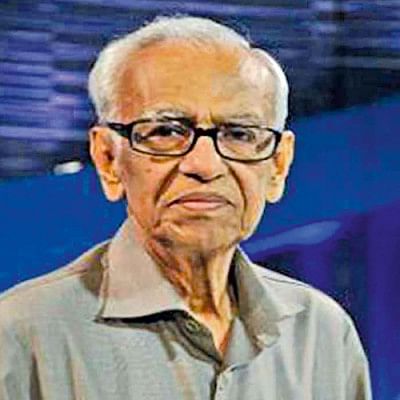Reflecting on the legacy of Barrister Rafique-ul Huq

Barrister Rafique-ul Huq, Senior Advocate of the Supreme Court of Bangladesh, breathed his last on October 24 leaving behind an ineffaceable legacy in the legal arena of Bangladesh. There is hardly any single areas of law that was not enriched by the unparalleled acumen of his scholarly legal mind.
He contributed significantly to the development of an array of branches of law, including constitutional, civil, criminal, admiralty, customs, tax, and arbitration. He played the role of an amicus curie in many cases where crucial issues regarding the interpretation of the Constitution of Bangladesh were involved, and he assisted the Supreme Court in answering pertinent questions of law. Mr. Huq had conducted thousands of cases, nearly 500 of which have been reported in the recognised law reports.
Late Mr. Huq was the pioneer of the company and corporate law in Bangladesh as well. He was one of the members of the Company Law Reform Committee in 1977. In addition, he was a member of the National Committee related to Finance, Banking and Credit wherein he acted as Chairman of the Finance and Banking Sub-Committee and played a pivotal role in reforming the banking laws. He also played an instrumental role in enacting various laws including Bangladesh Bank Orders and pertaining to Private Investment. He was one of the members of the Committee formed for developing the share market. He also served as Chairman of the Corporate Law Committee. Moreover, he was the member of International Chamber of Commerce, Asia, and International Court of Arbitration.
His acumen reigned above partisan politics, across regimes. Post-independence, he was directly involved with the drafting of laws during the regime of the Father of the Nation, Bangabandhu Sheikh Mujibur Rahman. During that time, he was asked to draft the Nationalisation Order, 1972, and subsequently, he drafted de-nationalisation law while Mr. Ziaur Rahman was in power. Later, he challenged the indemnity ordinance (indemnifying murderers of Bangabandhu) passed during the period of Ziaur Rahman before the Hon'ble High Court Division and got the same declared illegal and unconstitutional. His contribution as a lawyer during the national crisis of 2007-2009 was enormous. He represented people of different political identities and intersections. He acted as a lawyer of many political leaders, including the Prime Minister, Sheikh Hasina, and thus played a significant lawyerly role in reinstating rule of law and democracy at that time.
From 1975 to 1976, he acted as Chairman of the Bar Council Tribunal as well as Election Tribunal. He was appointed as the Attorney General for Bangladesh in 1990 and in that capacity, he also acted as Chairman of Bangladesh Bar Council. Moreover, he was one of the members of the representative team who attended the General Assembly Meeting of the United Nations in 1990.
His passion, dedication, sincerity, professional integrity, and commitment towards rule of law, judiciary, country, and people at large made his life worth celebrating and reflecting on. He was a great legal thinker, who lived in a time way ahead of his own. His legacy will stay as a legendary one – of one Barrister Rafique-ul Huq, of his time and forward.
The writer is an Advocate, Supreme Court of Bangladesh.

 For all latest news, follow The Daily Star's Google News channel.
For all latest news, follow The Daily Star's Google News channel. 



Comments